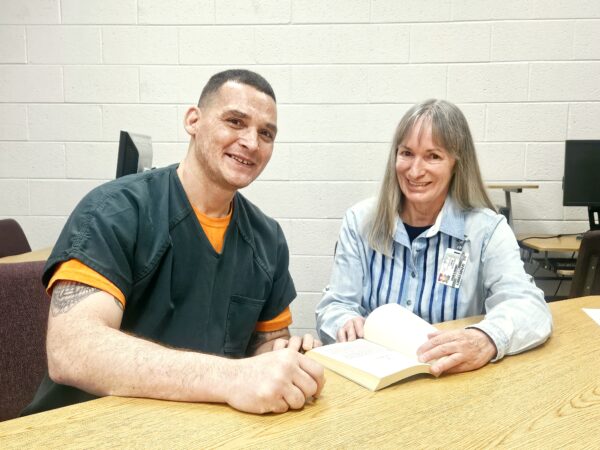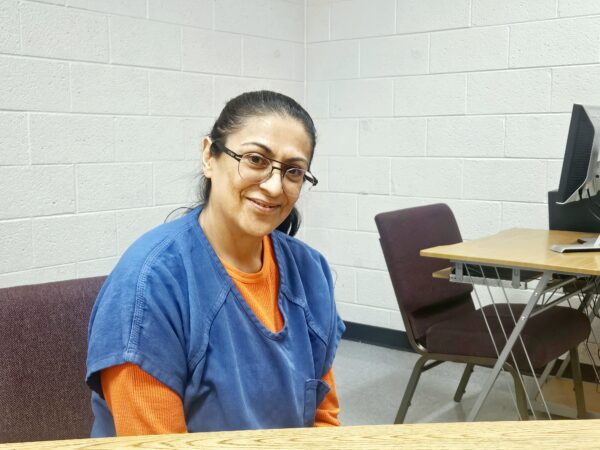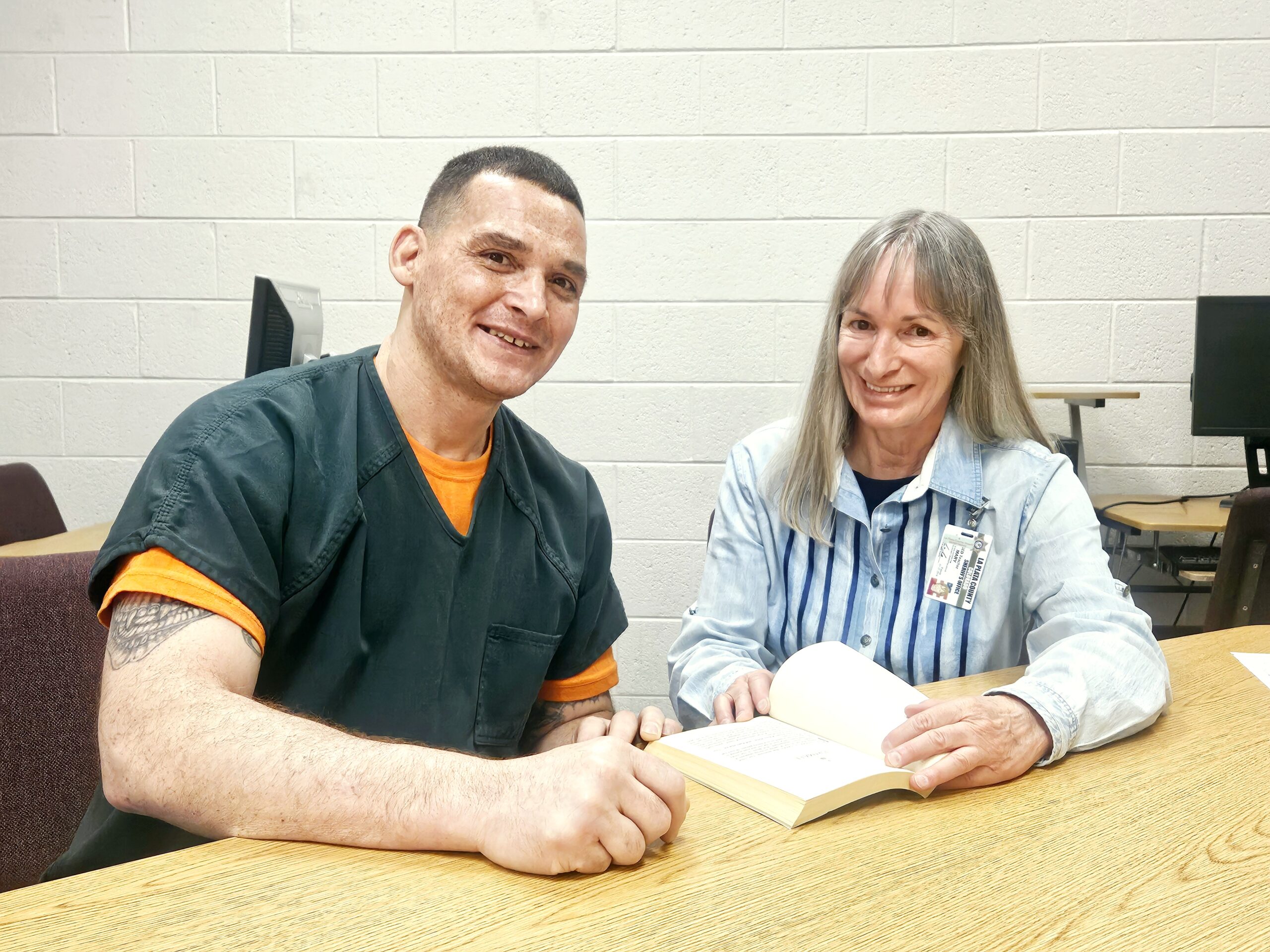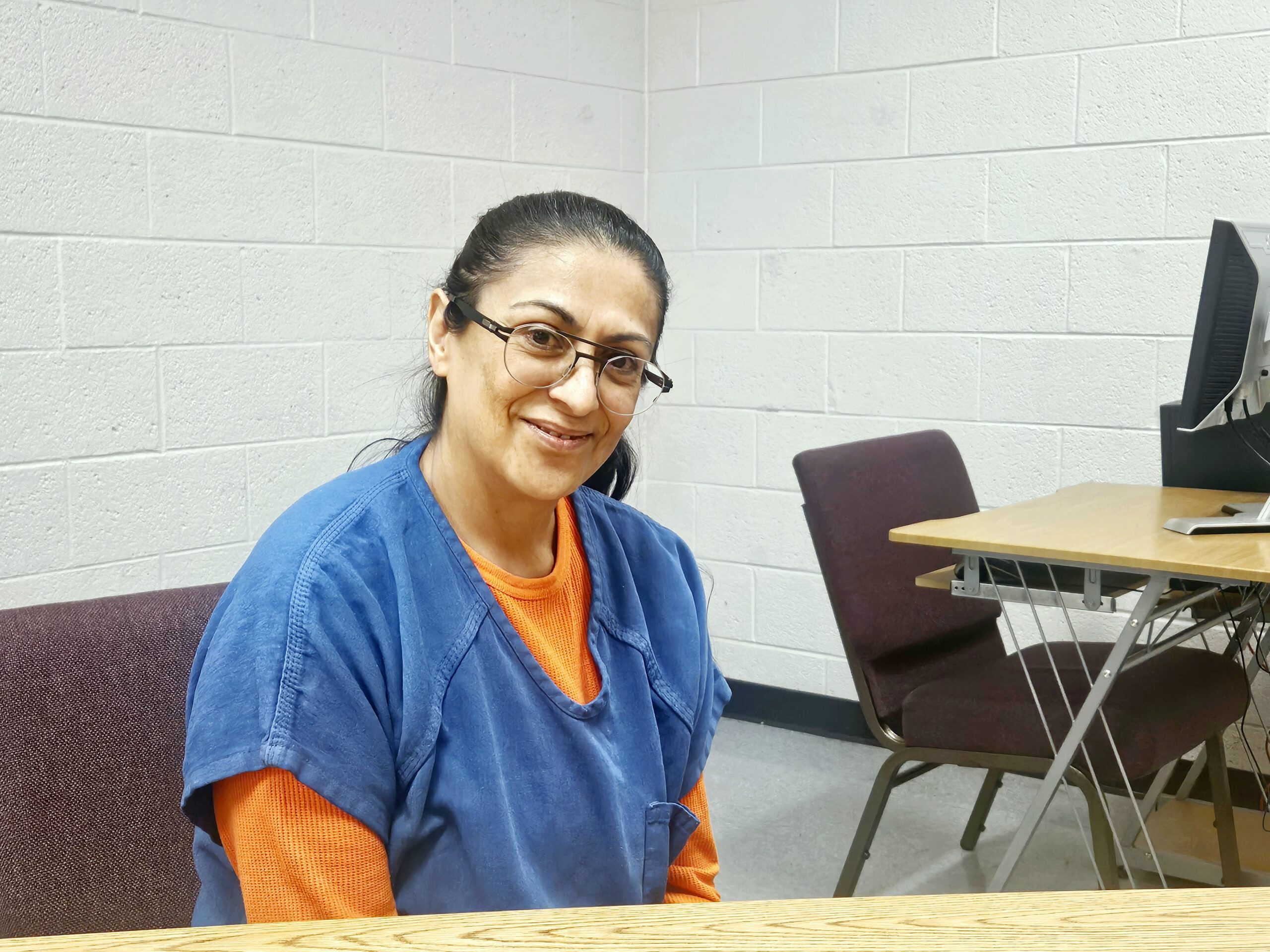For Incarcerated Students, Served Time Is Not Time Wasted
Editor’s Note: Our Spring 2024 newsletter briefly featured two tremendous GED students, whose powerful voices were sadly truncated within the bounds of the print publication. Given that all too often the voices of the underserved and most at-risk individuals are deprived of platforms, we have elected to publish a fuller, digital version of their conversations here. The AEC believes that all people have inherent worth, all people have the potential to create positive change, and a top priority of humanity is to create a better, more compassionate world. We hope these conversations with Donald and Patricia help promote these values beyond the walls of our caring learning center.
Donald
“I like social studies and literature,” Donald confesses. He is halting at first, perhaps reluctant to share these secrets. But soon, his enthusiasm gets the better of him. He chatters as quickly as the honeyed drip of a Mississippi accent will allow. “I was just reading Dante’s Inferno again. That and Paradise Lost. With those two, you can always read them twice and you’re always going to pick up something that you didn’t the first time. And that’s what I like about it. And it gives me a different look on a lot of things.”
By now, Donald is leaning forward, elbows braced on the table. He is ready for a deep discussion of the texts. “[Literature’s] my favorite subject because I like to read a lot. I like poetry to read just to take my mind off…you know.”

Donald and AEC teacher and jail tutor, Mary Mullen
He nods to indicate the windowless cinderblock room of the La Planta County Jail. It is the room where he comes to take his GED tests. It is appointed with two computer stations—simple desks with old Windows PCs—a conference table and chairs, a whiteboard, and a security camera nested in the corner.
The fluorescent lights overhead emit equal parts light and electrical whining.
To prepare for the four GED subject tests, Donald meets with tutors from the Adult Education Center’s Durango campus. Some are teachers at the center. Others are community volunteers with a talent for or expertise in the particular subject matter. Math. Science. Reading & Language Arts. Social Studies. These are the areas he must master before testing.
In a good week, Donald might get to meet with his tutor for one hour. Not one hour per day. Just one hour out of a single day. “They’ve got to see multiple inmates,” he explains.
Donald is an inmate worker, meaning he performs menial labor the jail in exchange for small privileges. Male workers share a quieter living unit. They may not have to share cells. Best of all, they escape the monotony of prison life through their work which, ideally, imparts new skills.
“I work in the kitchen in the bakery. I’m learning to bake!” Donald grins and sheepishly shakes his head. “I’ve baked a little before but not on this scale. Now I’m like: I like baking! I’ve found something new. It’s fun! I enjoy it.”
He delights in baking coffee cake. He also recently made an angel food cake and a banana cake with orange-flavored icing. Baking and studying for the GED are the two bright spots in Donald’s day.
Patricia
“I stick to myself most of the time. I’m in my room; however, I do come out to watch a little TV but I’m not a big TV person,” Patricia describes her typical day in the La Plata County Jail. The almost-60-year-old sits with her hands clasped on her lap. Her shoulders and head tilt forward as if she’s perpetually poised to listen for instructions.

Patricia is always ready to learn.
“I prefer reading and studying. But the loudness now is definitely there. Definitely noticeable. And you do not want to argue about the noise because people are very um…they’re very…confrontational. We have to pick our battles. And I’m older than them and I definitely do not want to engage.”
Patricia already vanquished two of the GED subject tests—Science and Social Studies. She dreads the Math test most. “I’ve never been good at math. It’s going to be the biggest challenge for me,” she says.
Language, on the other hand, is her specialty, even though English is her second language. Patricia grew up in Mexico and started learning English when she was young. Her fluency is polished, but reading in a foreign language is always a challenge.
She lived in the US for a time when she was a pre-teen. She took other language classes while she worked for a Berlitz Language Center in Mexico. She struggled with French and Portuguese, but Italian was a sinch! Being multilingual has served as Patricia’s coin of the realm, securing excellent career pathways. Patricia completed her education in Mexico, but due to various paperwork logjams, she could never get a translated copy of her credentials to show U.S. employers. Then she spent 13 years married and did not work.
Now on her own, Patricia wants a GED so that she can support herself. “I need to find work and I don’t want to have any impediment. Plus, I thought it was good to do something for myself while I was here. The main thing is to get the GED, but also dedicate myself to something other than sitting around.”
She meets weekly with a tutor. Sometimes she gets to meet twice with a tutor and loves it. She says, “Our teachers are great. Not only do they have great personalities, they are so kind. I just love it. Good people—compassionate people—they bring out the best in us in dire situations.”
Donald
Once his time served, Donald dreams of a quiet life. He loves to refurbish antiques or create unique furniture from repurposed items. “I had some skeecheers…” he stops and chuckles. “There’s my accent. Ski. Chairs.” He articulates the words. He describes how he’d marveled at the creativity of the craftsperson who configured skis into lounge chairs. He repaired them, made some design improvements, and sold them for a profit.
“I’d like to open up a small business, doing like remodeling because that’s what I enjoy doing—carpentry work and remodeling,” he says.
Donald’s dreams are largely tied to the outcomes of his GED test scores. He notes that the choices in jobs are limited without that diploma. “[A GED] opens up a lot more doors for you. If you want to get your business license, you would need to first obtain a GED and further your education in whatever field it is.”
He is also quick to point out that he receives so much more than a certificate. He explains, “I’ve learned I’ve got what it takes to succeed in something if I put my mind to it. Focus. Just focus and take the time to learn it.”
He was, however, hesitant to launch his studies in jail. Donald recalls, “You get a little nervous at first. You think: I don’t wanna do this because I don’t want to look stupid. I don’t want to embarrass myself. But once you get in there, the tutors and the teachers here are down to earth and no matter what level of learning you’re on, they’re there behind you, helping you move forward with the process.”
Having settled into the study groove, he finds his attitudes have radically altered. “I look forward to Fridays,” he says. “Even though it’s only an hour, it’s still time to go talk politics, math or whatever it is we’re studying. Honestly, when I leave, I feel like I’ve gained something more. So long as I feel that way, I know I’ve bettered myself from the experience.”
Donald sincerely encourages community supporters to help sustain the AEC’s jail programming. He notes, “With the GED program and with the support for the programs in the jail, you’re actually doing something that can keep someone from going back to jail. If we take up the program and succeed, the money’s not wasted because you’re gonna see positive product. Once you invest in it, you can see your gains from it by what we do once we complete it and move on from here.”
Patricia
After a break, Patricia returns to the interview on edge. She had a run-in with her cell mates. One group was bullying a girl with a speech impediment. Patricia recounts the details, “She is a sweet girl so she shouldn’t be made fun of or laughed at, and so I stepped in…but to my demise because now I’m seen as confrontational to them. But I had to do it. When I saw the unfairness of the situation, I thought I’m not going to allow this, but now it’s going to be like walking on eggshells.”
She takes several deep breaths, pressing her hands against the fabric of her smock pants. With a final exhale, she declares, “You just gotta make the best of it. You gotta take the pros and not focus on the cons.”
Finding silver linings does seem to be one her many skill-sets. For instance, although none of the books in the jail’s library of donated texts could serve her studies for the GED, Patricia still takes full advantage of the chance to read. She also never hesitates to ask her tutors for homework. “That keeps me busy. I’m disciplined, so I pick my times during the day and I’m always doing work,” she says.
Patricia is also aware of the more valuable benefits she has gained from her studies. She notes, “It’s validated me. I think it’s important to enhance ourselves even though the circumstances around us might not allow it. Being in jail, it makes you feel like you are failing at some level and that could be impacting your psychology and your ability to overcome things. So, this experience has been good for me.”
To the AEC’s many benefactors, Patricia urges unflagging support. As she puts it, “Continue to [give] because there’s a lot of us that really want to get ahead or get back on our feet and overcome the challenges of prison and jail time. The educators need all the support they can get. I don’t know what we would do without them. Bless their hearts; they are really wonderful.”
The Poetry of Prison
In “The Uses of Sorrow,” poet Mary Oliver explains how she’d once been given “a box full of darkness. / It took me years to understand / that this too was a gift.” Although not as verbose as Milton’s Paradise Lost or Dante’s Inferno, Oliver’s poem speaks to the power of positively reframing our misfortunes. And even though Donald and Patricia inhabit the same building and have never met, both share this capacity to turn a box of darkness into a gift.
Of her life and what she’s been through, Patricia says, “I wouldn’t trade it for anything. I love what I’ve come through and where it’s getting me to.”
“In the middle of every difficulty lies an opportunity,” Donald quotes his favorite adage.



